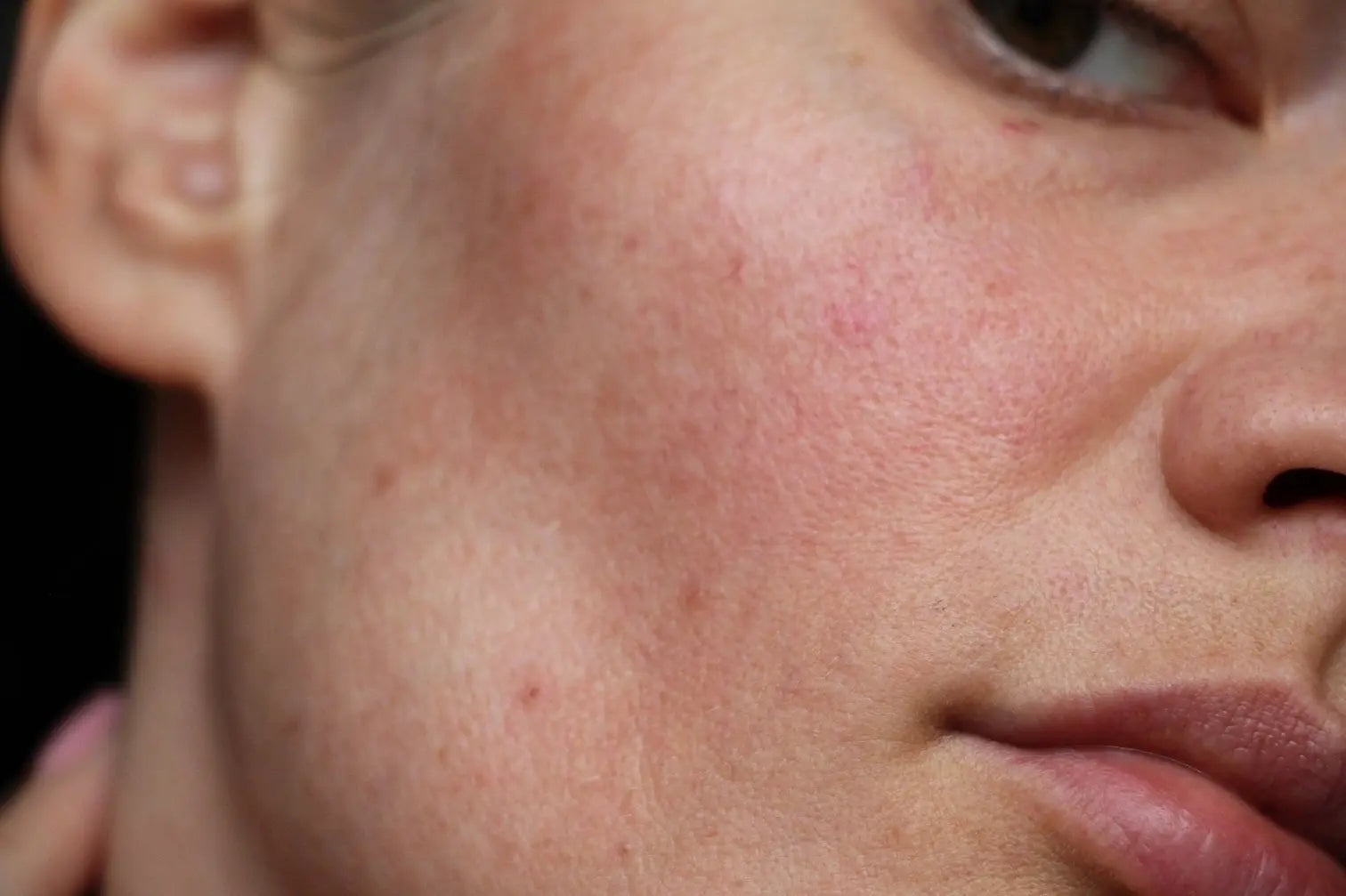What Causes Skin to be Inflamed?
What Causes Skin to be Inflamed?
How Do You Relieve Red Inflamed Skin?
- microbial infection
- dysfunctional immune response
- allergic reaction
- Fragrance in skin care
- Parabens in skin care
- sun (UV) damage
- temperature/heat rash
- psychological stress
How Do You Relieve Red Inflamed Skin?
- microbial infection
- dysfunctional immune response
- allergic reaction
- Fragrance in skin care
- Parabens in skin care
- sun (UV) damage
- temperature/heat rash
- psychological stress
How Can I Reduce Inflammation Quickly?
- Reduce heavy topicals: Reducing any unnecessary topical products will minimize exposure to potential skin irritants, allowing the skin to reset and return to its baseline state.
- Simplify your routine: Opt for topical skin care products like a peptide moisturizer or gel cleanser that have ingredients with calming and moisturizing properties like hyaluronic acid or glycerin in order to treat the skin barrier.
- Maintain moisture: Maintaining adequate moisture in the skin by supplementing water and/or oils (particularly fatty acids) is generally good practice when your skin is upset, depending on your skin type.
How Can I Reduce Inflammation Quickly?
- Reduce heavy topicals: Reducing any unnecessary topical products will minimize exposure to potential skin irritants, allowing the skin to reset and return to its baseline state.
- Simplify your routine: Opt for topical skin care products like a peptide moisturizer or gel cleanser that have ingredients with calming and moisturizing properties like hyaluronic acid or glycerin in order to treat the skin barrier.
- Maintain moisture: Maintaining adequate moisture in the skin by supplementing water and/or oils (particularly fatty acids) is generally good practice when your skin is upset, depending on your skin type.
Why is My Skin So Red and Inflamed?
Why is My Skin So Red and Inflamed?
Does Skin Inflammation Go Away?
Does Skin Inflammation Go Away?
What Reduces Skin Redness and Inflammation Naturally?
- aloe vera
- green tea
- colloidal oatmeal
- licorice root
- centella asiatica (Cica)
- ascorbic acid (Vitamin C)
- green tea
What Reduces Skin Redness and Inflammation Naturally?
- aloe vera
- green tea
- colloidal oatmeal
- licorice root
- centella asiatica (Cica)
- ascorbic acid (Vitamin C)
- green tea
How Can I Prevent Skin Inflammation?
How Can I Prevent Skin Inflammation?
What Can You Do About General Inflammation Care?
What Can You Do About General Inflammation Care?
- Skin inflammation is a sign that your body's immune system has recognized something as an infection and is working to fight it.
- Inflammation can be triggered by infections, immune responses, chemicals in skin care, the sun, temperature, or stress.
- Reducing heavy topical products and using a simple, moisturizing skin care routine can help heal inflammation.
- Skin inflammation is a sign that your body's immune system has recognized something as an infection and is working to fight it.
- Inflammation can be triggered by infections, immune responses, chemicals in skin care, the sun, temperature, or stress.
- Reducing heavy topical products and using a simple, moisturizing skin care routine can help heal inflammation.


